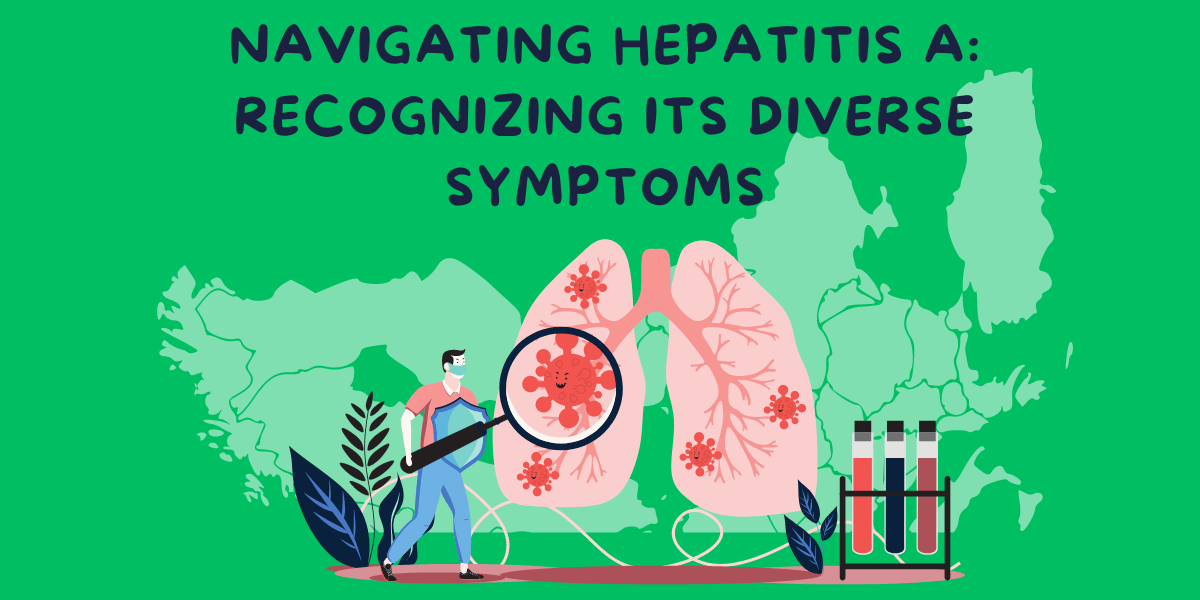What are The Symptoms of Hepatitis A?
Navigating Hepatitis A: Recognizing Its Diverse Symptoms
The Spectrum of Symptoms: Hepatitis A
Hepatitis A is a viral infection that targets the liver, causing inflammation and impairing its vital functions. This illness is primarily transmitted through contaminated food, water, or close contact with an infected person. Recognizing the symptoms of Hepatitis A is crucial for early diagnosis and management.

Initial Stages and General Symptoms
Hepatitis A often has an incubation period of about 2 to 7 weeks, after which the symptoms begin to manifest. The initial stage of the infection might be characterized by a general feeling of malaise, fatigue, and a lack of appetite. Individuals might also experience mild fever, joint pain, and mild abdominal discomfort. These non-specific symptoms can easily be mistaken for other viral infections.
Gastrointestinal Distress
As Hepatitis A progresses, it tends to impact the gastrointestinal system more prominently. Nausea, vomiting, and diarrhea are common symptoms. The affected person might notice a change in the color of their urine, which could become darker, along with pale-colored stools. This indicates the compromised function of the liver in processing bilirubin.
Jaundice:
One of the hallmark symptoms of Hepatitis A is jaundice – a condition where the skin and the whites of the eyes turn yellow due to the accumulation of bilirubin. Jaundice usually appears after the initial flu-like symptoms and gastrointestinal distress. It signifies the more advanced stage of the infection when the liver’s ability to process bilirubin is significantly impaired.
Itchy Skin
Alongside jaundice, individuals might experience itching or pruritus on their skin. This uncomfortable sensation is attributed to the accumulation of bile salts under the skin as the liver’s function is further compromised.
Flu-like Symptoms
As mentioned earlier, the initial stage of Hepatitis A infection can often mimic flu-like symptoms. These might include fever, fatigue, muscle aches, and a general sense of unwellness. Distinguishing Hepatitis A from the flu can be challenging without considering the other specific symptoms associated with the virus.
Duration and Recovery
The duration of Hepatitis A symptoms can vary. Some individuals might experience milder symptoms that improve within a few weeks, while others could face a prolonged recovery period. Generally, the liver has the capacity to regenerate, allowing most individuals to make a full recovery. However, it’s crucial to consult a medical professional for proper guidance during the recovery phase.
Conclusion
Being well-informed about the symptoms of Hepatitis A can help in early detection, appropriate medical intervention, and prevention of further transmission. While vaccines are available to protect against Hepatitis A, maintaining proper hygiene and food safety practices remains pivotal in preventing its spread. If you or someone you know exhibits these symptoms, especially jaundice and gastrointestinal distress, seeking medical attention promptly is paramount. Hepatitis A underscores the significance of safeguarding our liver health through awareness, vaccination, and responsible sanitation practices.




